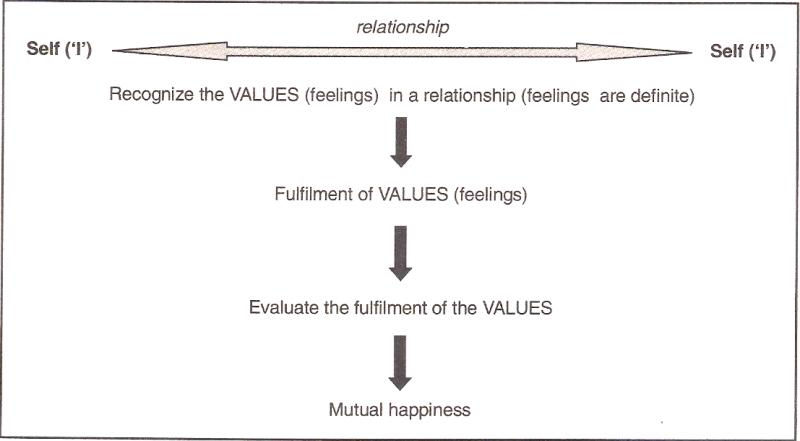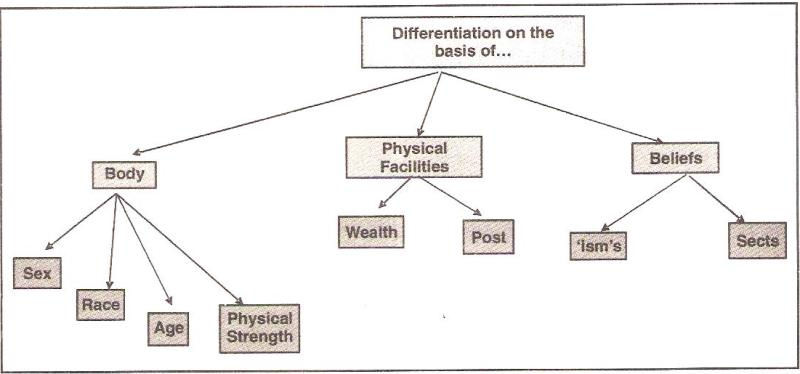Human Relationships
Human Relationships:
Justice is the recognition of values (the definite feelings) in relationship, their fulfilment, the right evaluation of the fulfilment resulting in mutual happiness. Justice concerns itself with the proper ordering of things and people within a society. There are four elements: Recognition of values, fulfilment, evaluation and mutual happiness ensured. When all the four are ensured, justice is ensured. Mutual fulfilment is the hallmark of justice. And justice is essential in all relationships. Justice starts from family and slowly expands to the world family. The child gets the understanding of justice in the family. With this understanding, he goes out in the society and interacts with people. If the understanding of justice is ensured in the family, there will be justice in all the interactions we have in the world at large. If we do not understand the values in relationships, we are governed by our petty prejudices and conditionings. We may treat people as high or low based on their body (particular caste, or sex or race or tribe), on the basis of wealth one possesses or the belief systems that one follows. All this is source of injustice and leads to fragmented society while our natural acceptance is for an undivided society and universal human order. Having explored the harmony in the human beings, we are able to explore the harmony in the family. This enables us to understand the harmony at the level of society and nature/existence. And this is the way, the harmony in our living grows. We slowly get the competence to live in harmony with all human beings.

Differentiation in Relationship:
Respect means accepting individuality and doing right evaluation (to be evaluated as I am). Our basis for respect today is largely quite contrary to our discussion above. Instead of respect being a basis of similarity or one of right evaluation, we have made it into something on the basis of which we differentiate i.e. by respecting you mean you are doing something special, because you are special or have something special or are in some special position. Thus, all of us are running around seeking respect from one another by trying to become something special. Today, we are differentiating in the name of respect. We either differentiate people on the basis of their body, on the basis of their wealth and possessions or on the basis of their beliefs. There is no notion of respect in terms of right evaluation. Thus, there is no real feeling of relationship, only one of differentiation.

On the basis of body:
- Sex/Gender: We ignore the fact that being male or female is an attribute of the body, and not an attribute at the level of ‘I’. And differentiate in giving respect on the basis of gender called male and females. In many countries, people even prefer a male child to a female child, and in some other societies, the other way round.
- Race: If the person is of the same race as oneself, then we treat them differently. For example, we differentiate on the basis of skin colour – white, brown, black etc. or on the basis of whether the person is of Aryan race, Mongolian race etc. or on the basis of caste. Again here, we don’t do the evaluation on the basis of ‘I’, but on the basis of the body
- Age: We have notions such as ‘one must respect elders’. There is no such notion as respect youngsters. Here, we see that we are again evaluating at the level of the body – age is related to the body, and not to ‘I’.
- Physical strength: If someone is stronger, we again treat him/her differently. This is again at the level of the body. In fact, we think that we are respecting the other while it is fear; the fear that if we do not treat them like this, we will be harmed.